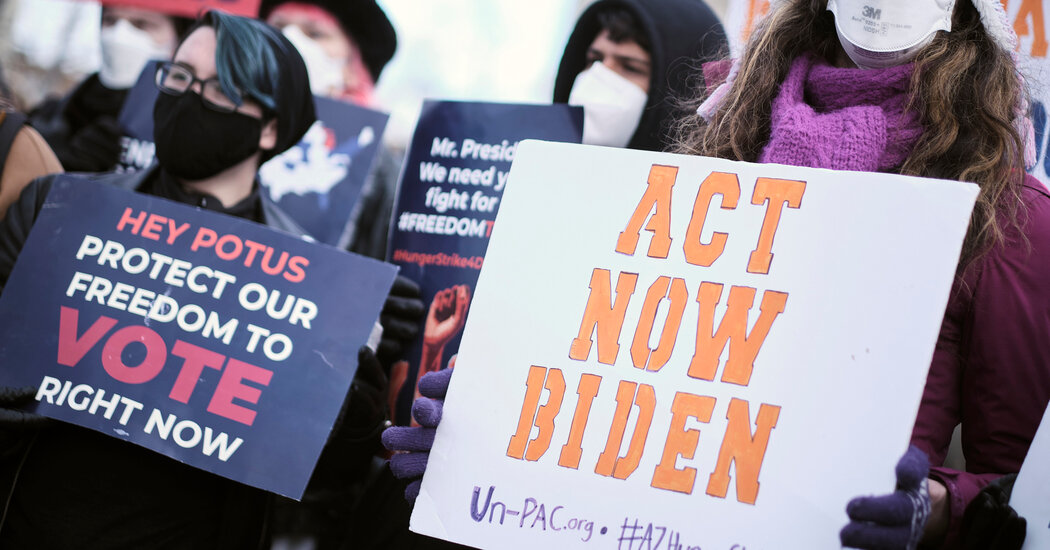The current battle over voting rights — who gets to vote, how votes are cast and counted, who oversees the process — has turned what was once the humdrum machine room of United States democracy into a central partisan battlefield with enormous stakes for the future of American democracy.
Since the 2020 election, and spurred in large part by former President Donald J. Trump’s oft-repeated lie that a second term was stolen from him, the Republican Party has made a concerted new effort to restrict voting and give itself more power over the mechanics of casting and counting ballots.
In 2021, Republican-led legislatures in dozens of states enacted wide-ranging laws overhauling their election systems, and G.O.P. lawmakers are planning a new wave of such laws in 2022.
Here is a quick rundown of those efforts, Democratic pushback and why it all matters.
Why are voting rights an issue now?
The 2020 election saw a sea change in voting habits. Driven largely by the pandemic, millions of Americans embraced voting early in person and voting by mail.
Democrats in particular flocked to the two forms of early voting — a trend that raised alarms among Republicans. And Mr. Trump attacked mailed-in ballots in hopes of overturning the election’s result.
Since then, Republican-led legislatures have justified new restrictions on voting by citing a lack of public confidence in elections.
What are Republicans trying to do?
Broadly, the party is taking a two-pronged approach: Imposing additional restrictions on voting (especially mail voting), and giving Republican-controlled state legislatures greater control over the administration of elections.
Why are these efforts important?
The newest restrictions could have outsize effects in racially diverse, densely populated areas. In Georgia, the four big counties at the core of metropolitan Atlanta — Fulton, Cobb, DeKalb and Gwinnett — will have no more than 23 drop boxes in future elections, down from the 94 available in 2020.
The stakes are enormous: In battleground states like Georgia and Arizona, where the 2020 presidential margins were less than 13,000 votes, even a slight curtailment of turnout could tilt the outcome.
How are Democrats pushing back?
Through Congress and the courts, but with limited success.
In Congress, Democrats have focused their efforts on two sweeping bills, the Freedom to Vote Act and the John Lewis Voting Rights Advancement Act. But Republicans in the 50-50 Senate have blocked both. That leaves many Democrats pressing for a change to the Senate’s filibuster rules, but some moderates, including Senator Joe Manchin III of West Virginia, are opposed.
Can the courts do anything about voting laws?
Yes — but far less than they once could.
The Supreme Court has greatly weakened the Voting Rights Act over the last decade, deeply cutting into the Justice Department’s authority over voting and giving states new latitude to impose restrictions.
Democrats, civil-rights groups and voting-rights organizations have filed more than 30 lawsuits opposing new voting laws. But the legal process can sometimes take years.
Which states have changed their voting laws?
Nineteen states passed 34 laws restricting voting in 2021, according to the Brennan Center for Justice. Some of the most significant legislation was enacted in battleground states.
Georgia limited drop boxes, stripped the secretary of state of some of his authority, imposed new oversight of county election boards, restricted who can vote with provisional ballots and made it a crime to offer food or water to voters waiting in lines.
Read the full story for details about the laws passed in specific states, where more extreme efforts are underway, important background and more.


























